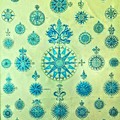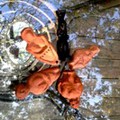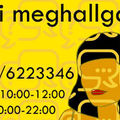Interkulturális és Irodalmi Centrifuga Alapítvány
1091 Budapest, Üllői út 69. 3/1. Public Benefit Report 31st December 2010 |
| Contents:
1. Financial Report 2. Use of Public Funds 3. Use of Unrestricted Reserves 4. Report on Restricted Funds 5. Report on Funds Received from State Funding Bodies, Ringfenced State Bursars, Local Governments and Other Governmental Organisations 6. Report on the Management Costs of the Fundation 7. Short Activity Report |
1. FINANCIAL REPORT In 2010, Interkulturális és Irodalmi Centrifuga Alapítvány conducted all its activities according to relevant Hungarian legislation and related regulations, and presents this simplified public benefit report for this year. Total net assets were 333,000HUF, of which 200,000HUF was reserves carried over from previous years. 2. USE OF PUBLIC FUNDS In 2010, the foundation received 1,000,000HUF in public funds, and 208,000HUF of public funds were carried over from 2009. These amounts were used in their entirety in the financial year of 2010, according to the contracts relating to them. The amounts of public funds used in 2010 show a growth of 416,000HUF compared to 2009. 3. USE OF UNRESTRICTED RESERVES The reserves of the foundation have not shown any material changes compared to previous years, because its activities have been solely based on restricted funds and donations. These funds financed the charitable activities of public benefit as set out in the founding document. Reserves have grown in 2010 by 101,000HUF, which the foundation wishes to expend on costs relating to continuity of core activities. 4. REPORT ON RESTRICTED FUNDS In 2010, the cost of continuous activities, as set out in the founding document, was 8,593,000HUF. 5. REPORT ON FUNDS RECEIVED FROM STATE FUNDING BODIES, RINGFENCED STATE BURSARS, LOCAL GOVERNMENTS AND OTHER GOVERNMENTAL ORGANSIATIONS In 2010, the foudnation received a total of 9,431,000HUF from governmental organisations. This shows a year-on-year increase of 934,000HUF. 6. REPORT ON THE MANAGEMENT COSTS OF THE FOUNDATION Interkulturális és Irodalmi Centrifuga Alapítvány does not have an employment relationship with the Chair of its body of curators, nor with its Curators. They carry out their management duties as volunteers, free of charge. The curators or the Chair did not enjoy any personal financial benefit from the foundation in 2010. 7. SHORT ACTIVITY REPORT ACTIVITY REPORT FOR THE YEAR 2010 The closure ofa long period, finished projects and new initiatives Interkulturális és Irodalmi Centrifuga Alapítvány HEREAFTER REFERRED TO AS ICA has completed its 6th year of acitvity. In 2010, ICA wet through re-structuring, public readings became fewer, our online presence increased, and its Hétes Summer Camp became more established. Our finances: Funds deferred from 2009: /4,782,000HUF/ NKA Series of literary evenings entitled Vesszőfutás 208,000HUF MASZRE Events entitled Egyesült áramlatok 3,465,000HUF OSI Creative summer camp at Hétes 98,000HUF Donations Events at Hétes and running costs 1,114,000HUF (of which 1,011,000HUF was spent in 2010, and 103,000HUF was deferred to 2010) Funds secured in 2010: Funder | Activity | Realised in 2010 (in 000HUF) | Deferred to 2011 (in 000HUF) | Total (in 000HUF) | NKA | ICA online magazine for 2010 | 1000 | 0 | 1000 | ESZA | Programmes at Hétes | 1600 | 0 | 1600 | Sláger Angyal Alapítvány | Programmes at Hétes | 2000 | 0 | 2000 | Donations | Donations sought in 2010 in aid of the programmes at Hétes | 49 | 0 | 49 | | Total: | 4649 | 0 | 4649 | The foundation's financial means lasted until the end of October. In the last 2 months of the year contractors worked for free. The second half of the year, the organisation had to secure continuation funding. We managed to secure 3,000,000HUF from the OSI Relief Fund in January 2011. The uncertain times spurred ICA on to increased productivity, our annual achievements in all three main areas of operation were signifcant. Our online presence is very marked. Due to the daily updates and concerted efforts, our readership has been growing exponentially, our voice in the public domain and our feminist views are evident for our visitors. Due to the relentless work of Kriszta Bódis, one of our greatest achievements was to secure OSI fnding for the pilot of the Hétes Summer Camp. 1. ICA Evsnings – Egyesült Áramlatok ('United Currents') The series of ICA evenings entitled Egyesült Áramlatok was funded by MASZRE, which enabled us to continue our intercultural, feminist, literary and public activities complete with the ICA blog updated daily. In 2010, ICA held 10 evenings at variosu locations. In January, Kriszta Bódis and the Creative Roma Group from Hétes Summer Camp introduced their work in Gödör. The event included roundtable discussions and children's programmes, too. Further evenings were held at Nyitott Műhely, where guests included Terézanyu, Zsuzsa Rácz, Miklós Vámos and Margit Telkes. Agáta Gordon hosted topics and artists from world literature, alternative culture and current affairs alike. World literature was represented by a thousand-year-old Japanese novel and a Scandinavian crime thriller with a social message from the 21st century. Lady Murasaki's thousand-year-old manga, The Tale of Genji, and Stieg Larsson's Millenium Trilogy from 2005 have stirred great spiritual and mental waves. Their literary, sociological and feminist interpretations have broken new ground for ICA. Several Hungarian authors, whose works have been re-printed and re-read are of significant public interest. Albert Wass's suspected, but never proven war crimes, Sándor Tar 's past as a secret agent, which was revealed in 1999, or Cecile Tormay's Bújdosókönyv deeply divide their readership. These topics attracted a big audience to ICA, and they created a lot of publicity for the foundation. Our event held at Darshan udvar on 23rd October 2010 commemorated the big October revolutions of male history, without anger or bias, from a female perspective. The last event of this kind was held in the legendary Pilvax kávéház, where we introduced the new volumes of the anthology movement headed by Zsuzsa Forgács. We talked to authors, read excerpts, and facilitated discussions of united feminist currents. ICA online magazine reported of these events in pictures, audio and written materials (www.irodalmicentrifuga.hu), having taken the biggest share in pre-event publicity and organisation. 2. ICA online literary, public interest and civic magazine for women ICA online has been published for 3 years with a daily update to its contents in literary, public interest, national, gender and feminist topics. The quality and success of our online magazine is confirmed by the authors we work with and the continuous attention we have been getting from our readership. ICA's Editor-in-Chief is Agáta Gordon, her assistant editor was Gabriella Györe until June 2010. From July 2010, Andrea Magyari and Anita Sasvári have edited the magazine. Klári Németh Ványi's colurful reports were featured regularly, and several colleagues write and submit articles and topics to the editorial board. In 2010 we created approximately 1,000 posts, and had 150,000 visitors. We have been connected, spiritually or through work, to several hundred well-known or rediscovered authors and writings. In 2010, ICA online was published due to funding from NKA. ICA represents a consistently feminist approach in its public and civic stance, and lives and breathes current social developments. As a result of our public vigil, the perpetrators of Roma murders were brought to justice, we announced the ban on the “fascist festival”, we proclaimed Critical Mass the ’critical mass of the best’, we took a public stance for the respect of birth supporting Ágnes Geréb, and creatively contributed to the public debate on the Political Declaration on National Co-operation, pensions, freedom of the media etc. In the first half of the year, Gabriella Györe and Agáta Gordon edited the magazine, and the situation of the Roma population featured the highest on our social agenda, giving rise to new episodes of existing series, and eve a brand new series. New episodes were added to Agáta Gordon's experimental novella entitled Magdolna Quarter, which mixes elements of sociography and fiction. A new series was launched called Tales of ICA, which was updated every Saturday, in which several authors introduced their intercultural tales. Anna Szabó T., Ágnes Rapai, Magda Szécsi, Kriszta Bódis, Agáta Gordon, Virág Erdős and other authors submitted their writing for publication in this series. Some books we published reviews of in the first half of 2010: Lady Murasaki (A fénylő Muraszaki); The Tale of Genji; Stephanie Meyer Twilight Saga; authors of Icelandic crime fiction; works by Aladár Rácz, Lola Kosáryné Réz, Albert Wass, Cécile Tormay, but on occasion we ventured into the realms of non-fiction (e.g. The review of Az ember függő - az Anyag a vérben). We featured interviews with, among others, Gergely Fogarasi, Daniela Hernández Faith, with Eszter Pásztor about the fate of Bódvalenke, the Village of Murals, with Júlia Lángh, Kriszta Veres, Éva Kecskés, Mari Falcsik, and Irén Kármán. In our Versvasárnap ('Poem Sunday') we presented a wide range of authors from the entire spectrum of literature from Mónika Mesterházi to Ágnes Kupcsulik. In the second half of 2010, ICA announced an editorial competition, which featured 5 talented editors for a week each, contributing their personal interests and views to our magazine. The competition was organised and overseen by Agáta Gordon. The competition was successful, and as a result, two of the participants, Andrea Magyari and Anita Sasvári became editors of the blog. They introduced new sections and a new visual presence, which gave a refreshing change to the magazine while continuing its traditions. We started 3 new sections with weekly updates. Világ Tanítónői ('Female Teachers of the World') introduces and interprets the teachings of significant authors about human visions of roles of women and men, and their co-operation. Divat-Ica ('Fashion ICA') updates on a Friday with artists' profiles, articles and events from the crafts market. Napi, heti, tavalyi Flow ('Daily, Weekly, Yesteryear's Flow') gives a cross-section of archive and current material, and draws conclusions from their connections. 3. Action and Faith in the Settlement (Hétes Summer Camp): Cseppben a tenger Alkotásközpontú modell, Ózd ('the sea in the drop, creative model') (KKTT-Tutor Foundation's Maltese pilot project) continued the work of social integration started by the Hétes Summer Camp. The upper floor of the Arts House also functions as temporary accommodation for our social worker, the project leader and volunteers, and it is also suitable for groups and group events. Over the days of sessions we provide cold food for children, and a play room for younger children. On Sundays, the ceremonies of the Siloám congregation take place in the Arts House. The creative programmes were funded by ESZA Kht. under the title “Year Against Poverty and Exclusion”, and were managed by Irodalmi Centrifuga Alapítvány. Programmes included a monthly media workshop, a monthly drama workshop, a story maths revision class, volunteer development, and a women's group. In addition, we started a weekly film workshop and a weekly craft workshop. Budapest, 12th May 2011 Ágota Kun Chair 31st December 2010 *** | 























